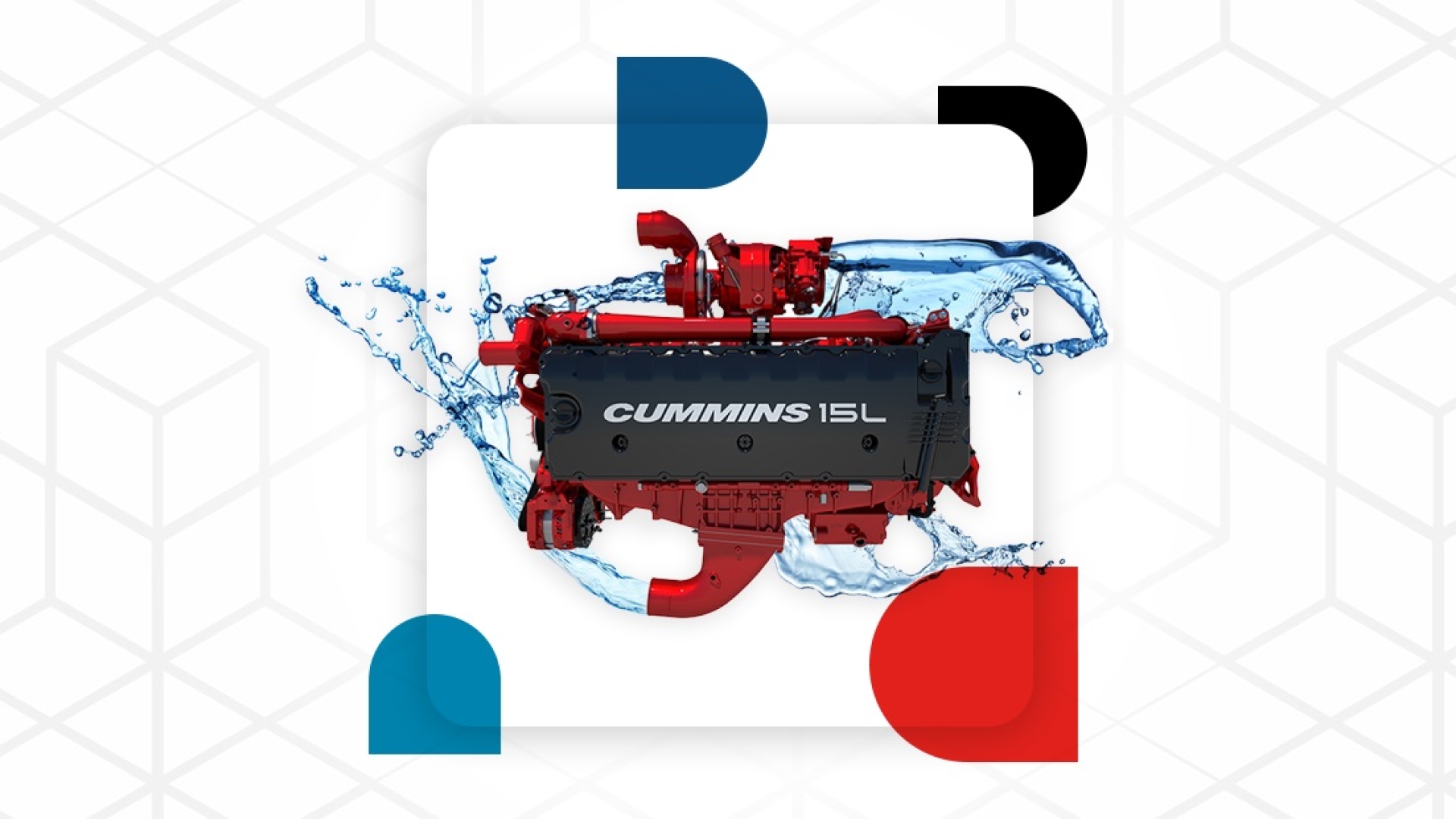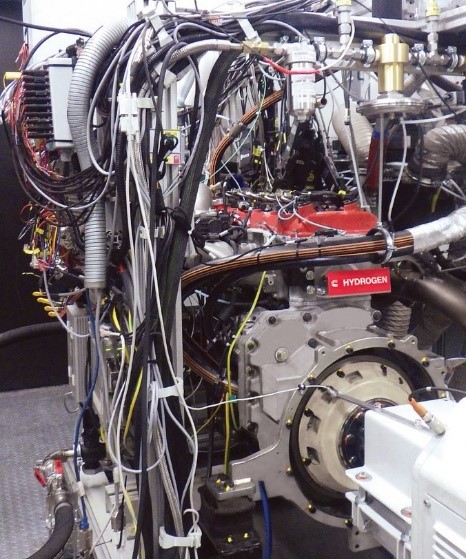Making a splash with hydrogen internal combustion engines
The search for power solutions to decarbonize commercial vehicles and off-highway equipment took an exciting turn last summer with an announcement from Cummins.
By Srikanth Padmanabhan, Vice President and President, Engine Segment

Cummins and Hydrogen Internal Combustion Engine (ICE) Development
Our hydrogen-fueled engine development program is one of our latest steps to advance zero-carbon technology. Customers are taking notice and so are governments.
Indeed, judging by some reactions, it's almost as if Cummins has just reinvented the internal combustion engine (ICE).

Of course, product development is in the early days, but the truth is, it looks very promising and I am excited about the capability of a hydrogen engine to virtually eliminate CO2 emissions.
A Class 8 sleeper cab semi powered by a hydrogen ICE would generate 144 fewer metric tons of CO2 per year, compared to its diesel-powered counterpart. This information is according to the EPA's Greenhouse Gas Emissions Model (GEM) for Medium- and Heavy-Duty Vehicle Compliance for model year 2027.
That adds up to saving 1,437 metric tons of CO2 over the life of that one vehicle -that's equal to nearly 575 full size hot air balloons filled with CO2 in the sky. Can you imagine what a fleet of hydrogen ICE vehicles can do if that is just one vehicle?
Why hydrogen ICEs?
Hydrogen ICEs are an ideal low cost zero-carbon solution for high load factor and high utilization applications. On the contratary, there are applications where battery electric solutions cannot meet the operational requirements and fuel cells are not yet economically viable.
A hydrogen ICE fits in today's trucks, works with today's transmissions and integrates seamlessly into the industry's existing service networks and practices. End users are responding positively to the potential for a hydrogen engine because of the zero-carbon fuel and its familiar technology.
Likewise, launching the hydrogen engine also benefits other paths to reach a zero-carbon future, such as hydrogen fuel cells. By creating a viable use case and demand for hydrogen in the near term, we can accelerate hydrogen infrastructure build-out and increase scale production of vehicle storage tanks. Both advances are necessary for the widespread adoption of fuel cell powertrains.
How will the hydrogen ICE make it to market?
Built on decades of experience and as a major player in natural gas engines worldwide, you can say that we at Cummins have an inherent advantage in getting this program off the ground.
There is significant reuse of appropriate engine components, which drives economies of scale while also providing reliability and durability equal to diesel.
But it's also important to note that with decades of experience in spark-ignited engines comes the knowledge that we will harness to bring differentiating technology to the forefront.
Our hydrogen-fueled engine development program plans to utilize all-new engine platforms. This aims to achieve a more efficient and higher power density product with flexible overhead cam systems, improved cooling, and reduced friction.
These platforms are being developed to avoid the performance limitations and other compromises associated with converting today's diesel or natural gas engines over to hydrogen fuel.
In addition, we have designed an advanced optimized combustion chamber for fuel mixing, charge motion, and turbulence generation. This design is critical for fast hydrogen combustion to maximize power density and efficiency.
Early testing on these and other advanced solutions are quickly validating our expectations.
What's next for Hydrogen ICE development?
The next step in our hydrogen engine innovation is to match the performance capability of the powertrain with the applications most struggling to find viable zero-carbon solutions in the near term.
Hydrogen ICEs will create a new and attractive solution where high load factors and high equipment utilization are critical to customers. With a wave of excitement and possibilities on the horizon, the hydrogen-fueled engine development program has the potential to expand the customers' powertrain of choice.
Taking on significant challenges is nothing new to Cummins. We have been doing just that for over a century, and innovation is in our DNA.
Over the last 25 years alone, we have achieved remarkable reductions in engines' criteria NOx and particulate matter (PM) emissions. Improvements in fuel efficiency have also been impressive and a corresponding decrease in CO2 emissions.
Over the next few years, our hydrogen-fueled engine development program will take on the challenge of delivering zero-carbon fuel. Our program will aim to retain all the performance attributes our customers have come to expect from Cummins.
Add this to our already diverse set of technologies available, the path towards the mass adoption of more environmentally sustainable solutions is within reach.
Author Profiles

Srikanth Padmanabhan, Vice President and President, Engine Segment
Srikanth Padmanabhan is Vice President and President of the Engine Business, the largest of Cummins' four business segments. In this role, he pushes the boundaries of customer-focused innovation to position Cummins as the leading powertrain supplier of choice, with its portfolio ranging from diesel and natural gas to hybrid and electric powertrains.
Related Tags